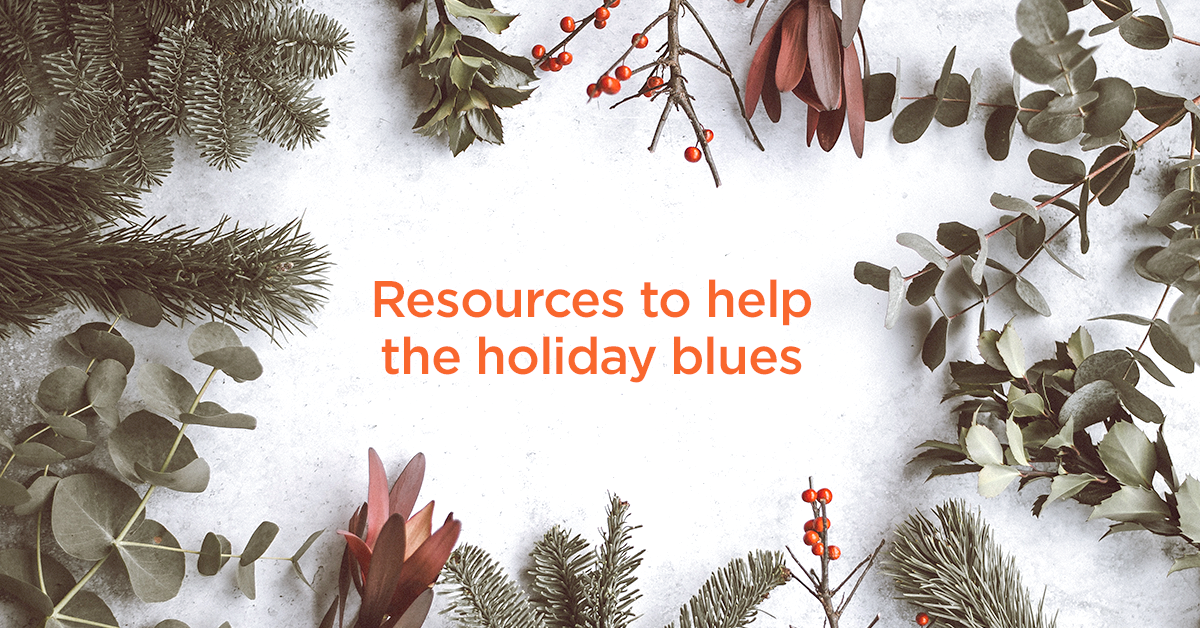Mental Health and the Holidays: Tips to Keep You Healthy

The holidays are supposed to be a time for joy, but for some people, they can introduce feelings of stress – about work, family, finances, and about how to balance it all.
Feelings of anxiety or depression can also develop during the holidays, and that’s why it’s important to recognize the difference between temporary melancholy and something more serious.
Temporary feelings of anxiety or depression can occur during the holidays due to factors like added stress, unrealistic expectations, or memories that you associate with the holidays. The National Alliance on Mental Illness says about 64% of people feel these so-called Holiday Blues, while nearly one in four people surveyed said the holidays had a significant impact on them.
Around the holidays, you may feel:
- Fatigue
- Tension
- Frustration
- Loneliness or isolation
- Sadness
- A sense of loss
Stressful feelings around the holidays can also be brought on by major life events that occurred during the year, including:
- Divorce: This is a big one, especially because it heavily impacts children. Discussing how to handle the holidays in advance can help, and if the kids are old enough, involve them in the planning.
- Death: The death of a loved one can be very difficult around the holidays as memories of the good times shared together come rushing back. My family lost two important members this year, and several in previous years. We read a poem in their honor before holiday dinners, but you can also set a ceremonial place setting, share stories, or look through cherished photos.
- New family: When new people join a family, traditions undoubtedly change. Set expectations, take different religions and cultures into consideration, and discuss how things will be different in advance, especially with kids.
- Financial difficulties: Whether you are dealing with job loss or other financial pressures, you need to be realistic. Overspending will only lead to future stress. Creating – and truly sticking to – a budget can help ease this stress.
One of the simplest ways to take care of yourself around the holidays is to be patient, and to take things week by week, or even day by day. Some other tips to remember:
- Rest: Make sure you get enough sleep each night.
- Simplify: Make a to-do list, and don’t overextend yourself. Stick to your normal routine as much as possible.
- Be reasonable: Set expectations and goals you can meet when it comes to shopping, cooking, or even buying gifts and cards.
- Say no: The holidays are often filled with countless invitations to parties, cookie and/or gift exchanges, concerts, and more. Don’t overextend yourself. If you don’t feel like going, there’s nothing wrong with politely declining.
- Take some time: Instead, spend some quality time with supportive and caring people in your life.
- Stay active: Even a short walk can help with your mental and physical health.
- Moderation: Be mindful of what you eat and drink. If you’re feeling down, avoid alcohol.
- Relax: Do what you enjoy, and what helps you unwind, such as reading or listening to music.
In many cases, the holiday blues are short-term and only associated with the holidays, but should be addressed, as they can sometimes lead to long-term mental health conditions.
Resources are available if you begin to experience feelings of stress, anxiety, or depression around the holidays. CDPHP members can call 1-888-320-9584 — 24 hours a day, seven days a week — to speak with someone who can provide you with assistance, and get you the help you need.
 The Daily Dose
The Daily Dose
Comments are closed.